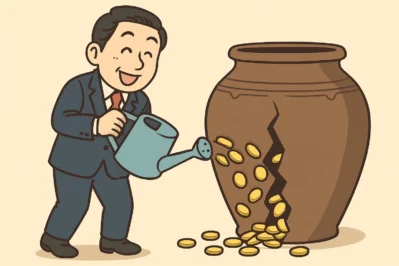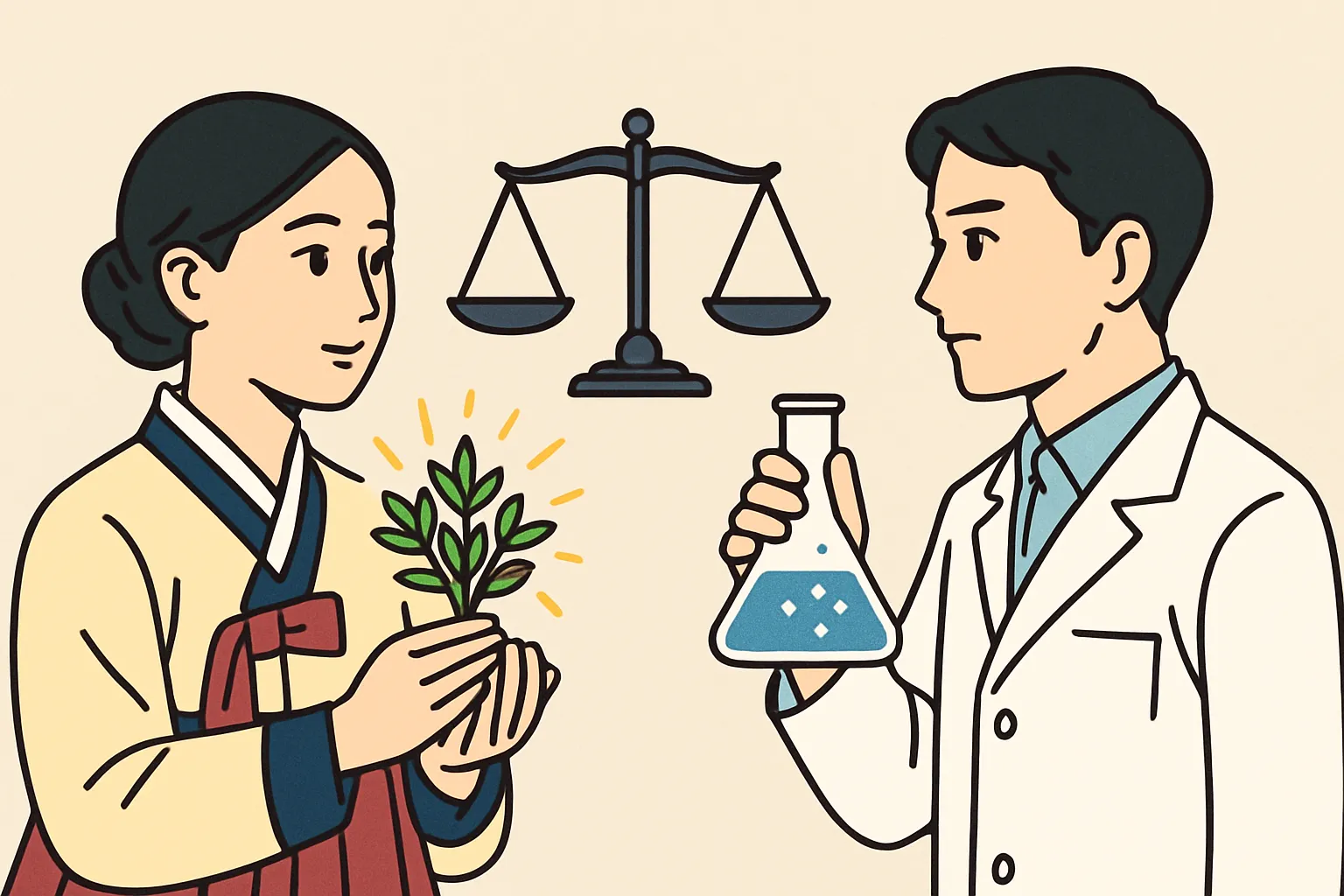Korea’s Subsidy Dilemma: A Boon or a Fiscal Burden?
Hello! Welcome back to [Maeil Hangeul], the place to upgrade your Korean proficiency to the next level!
Today, we’re diving deep into a topic you’ll frequently encounter in Korean news, academic journals, and high-level debates: government subsidies. We’ll explore the sophisticated language used to discuss the effects of subsidy policies (보조금 정책의 효과) and the fiscal burden (재정적 부담) they can create.
Recently in Korea, there’s been a heated public debate surrounding everything from subsidies for electric vehicles to the national R&D budget. Understanding the nuanced vocabulary around this issue will not only boost your Korean but also give you a front-row seat to understanding the Korean economy and political landscape. Ready to sound like a policy expert? Let’s begin!
Core Expressions for Policy Debates
Here are some essential terms you absolutely need to know to navigate conversations about economics and public policy in Korean.
1. 재정 건전성 (jaejeong geonjeongseong)
- Romanization: jaejeong geonjeongseong
- English Meaning: Fiscal soundness / fiscal health
- Detailed Explanation: This is a cornerstone term in economic discourse. 재정 (jaejeong) means ‘finance’ or ‘treasury,’ and 건전성 (geonjeongseong) means ‘soundness’ or ‘health.’ Together, they refer to the stability and sustainability of a government’s finances. It’s a formal and crucial concept used by policymakers, economists, and journalists when evaluating the long-term impact of government spending.
- 💡 Pronunciation Tip:
The pronunciation is quite straightforward, but focus on giving each syllable equal stress: [재-정-건-전-성]. Unlike English, Korean syllables are generally pronounced with similar length and force. Avoid the common mistake of rushing through the latter part of the word.
2. ~을/를 둘러싼 논란 (eul/reul dulleossan nonlan)
- Romanization: eul/reul dulleossan nonlan
- English Meaning: The controversy surrounding… / The debate over…
- Detailed Explanation: This is an incredibly useful and sophisticated pattern for framing a topic of debate. 둘러싸다 (dulleossada) means ‘to surround,’ and 논란 (nonlan) means ‘controversy.’ You attach it to a noun to indicate that the noun is the subject of a significant public or expert dispute. It’s a structure you’ll see constantly in news headlines and academic papers.
- 💡 Pronunciation Tip:
Pay attention to the liaison (연음) in 둘러싼. The final consonant ‘ㅆ’ (ss) from ‘쌌’ moves over to the next syllable, which starts with a vowel. So, instead ofdulleot-an, it is pronounced smoothly as [dulleossan].
3. 밑 빠진 독에 물 붓기 (mit ppajin doge mul butgi)
- Romanization: mit ppajin doge mul butgi
- English Meaning: Pouring water into a bottomless jar. (A futile, wasteful effort)
- Detailed Explanation: This is a classic Korean proverb (속담) used to powerfully criticize a policy or action seen as a complete waste of resources. 밑 (mit) means ‘bottom,’ 빠진 (ppajin) means ‘missing’ or ‘has fallen out,’ 독 (dok) is a large ‘jar,’ and 물 붓기 (mul butgi) is ‘pouring water.’ It vividly paints a picture of futility and is often used to argue against subsidies for failing industries or inefficient projects.
- 💡 Pronunciation Tip:
The key here is the tense consonant ‘ㅃ’ (pp) in 빠진. Produce this sound by building up pressure in your closed lips and releasing it abruptly, without a puff of air. It should sound stronger and tighter than a regular ‘ㅂ’ (b). For ‘밑’ [mit], the final ‘ㅌ’ sound is unreleased, meaning you form the ‘t’ position with your tongue but don’t release the air.
4. 선심성 정책 (seonsimseong jeongchaek)
- Romanization: seonsimseong jeongchaek
- English Meaning: A populist policy / Pork-barrel policy
- Detailed Explanation: This term carries a critical, negative connotation. It’s composed of 선심 (seonsim), meaning ‘generosity’ or ‘benevolence,’ the suffix -성 (-seong), which adds the ‘nature of’ something, and 정책 (jeongchaek), ‘policy.’ It refers to a policy designed primarily to win votes and public favor, especially before an election, often by distributing benefits without considering the long-term impact on 재정 건전성.
- 💡 Pronunciation Tip:
The nasalization rule (비음화) applies here. The final consonant ‘ㅂ’ in ‘심’ (sim) is followed by ‘ㅅ’ (s), but when spoken naturally in a compound word, it’s often pronounced closer to [선심썽 정책 (seonsimssyeong jeongchaek)] with a tensed ‘ㅆ’ sound for emphasis, though the standard is [seonsimseong jeongchaek]. Focus on clearly articulating each part.
Example Dialogue
Let’s see how these expressions are used in a real conversation between two policy analysts, A and B.
A: 최근 정부가 발표한 전기차 보조금 확대 방안에 대해 어떻게 생각하세요?
(What are your thoughts on the government’s recent plan to expand subsidies for electric vehicles?)
B: 단기적인 시장 활성화 효과는 있겠지만, 장기적인 재정 건전성을 해칠 수 있다는 우려가 큽니다.
(It might stimulate the market in the short term, but there are significant concerns that it could harm long-term fiscal soundness.)
A: 맞습니다. 일부 경쟁력 없는 모델에까지 보조금을 지급하는 것은 밑 빠진 독에 물 붓기가 될 수 있죠.
(I agree. Providing subsidies even to some uncompetitive models could just be pouring water into a bottomless jar.)
B: 네, 특히 총선을 앞두고 나온 정책이라 선심성 정책을 둘러싼 논란이 불가피해 보입니다.
(Yes, and since this policy was announced ahead of the general election, the controversy surrounding it being a populist policy seems inevitable.)
Cultural Tip & Trend Analysis
In Korea, the tension between welfare expansion (복지 확대) and 재정 건전성 is a central and perpetual theme in politics. During every election season and annual budget review at the National Assembly (국회), terms like 선심성 정책 and the proverb 밑 빠진 독에 물 붓기 are weaponized by opposition parties and media outlets to criticize government spending plans.
Understanding these expressions allows you to grasp the core arguments in these high-stakes debates. When you hear a politician defending a budget by emphasizing its positive economic effects while an opponent attacks it for damaging 재정 건전성, you’ll know you’re witnessing a fundamental ideological clash in Korean society. Being able to deploy these terms in a discussion will instantly mark you as a highly advanced and informed speaker of Korean.
Wrap-up & Practice!
Today, we’ve learned four powerful expressions that are key to discussing economic policy like a native speaker. We covered 재정 건전성 (fiscal soundness), ~을/를 둘러싼 논란 (controversy surrounding…), 밑 빠진 독에 물 붓기 (a futile effort), and 선심성 정책 (populist policy).
Now, it’s your turn to practice!
- Fill in the blank:
야당은 정부의 현금 지원 정책이 국가의 (____________)을/를 심각하게 훼손하는 선심성 정책이라고 비판했다.
(The opposition party criticized the government’s cash support policy as a populist policy that seriously undermines the nation’s (____________).) -
Your Opinion:
Think of a subsidy policy in your own country. In a short Korean sentence, express whether you think it’s effective or a case of “밑 빠진 독에 물 붓기” and why.
Share your answers in the comments below using the expressions we learned today! We can’t wait to see your expert analysis.






